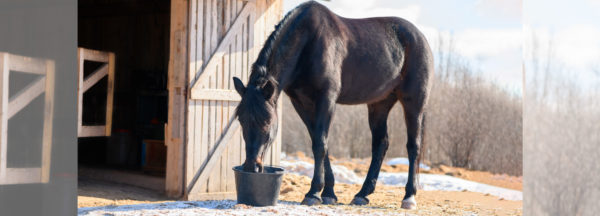3 Things You Didn’t Know About Beet Pulp

By Standlee Premium Western Forage
What do you know about beet pulp? Maybe you’ve heard of it, but wondered what it is and how it can be used in a horse’s diet. Here are three things you may not have known about beet pulp.
- Beet pulp is a byproduct from the processing of sugar beets which is used as fiber source for horses. Beet pulp is the highly-digestible, fibrous material left over after the sugar is extracted from the sugar beets. It can be in several forms — dried flakes or shreds, or as compressed pellets.
- Beet pulp in horse nutrition is of interest because of its high content of well fermentable fiber, relatively low-protein content and good palatability. Lewis (1995) recommended beet pulp as a substitute for hay in rations for horses with respiratory problems. Crandell and colleagues (1999) mentioned that feeding beet pulp can be beneficial for horses having difficulty maintaining body condition and for horses ingesting insufficient fiber with conventional sources like hay. Meyer (1987) suggested that beet pulp would be a good feed component for working horses, in general. Feeding high-fiber feeds like quality forage and beet pulp can also help maintain hydration. Beet pulp also provides a reasonable source of calcium, intermediate between the high calcium in alfalfa and the lower calcium content of grass hays, but much higher than grains.
- The protein content of beet pulp is relatively low, so that replacement of grains or hay by beet pulp lowers protein intake; thus, beet pulp feeding can be applied to diminish protein intake while maintaining energy intake. A high-protein intake and, thus, a high-nitrogen workload, is detrimental in horses with liver or kidney disease (Lewis, 1995). Therefore, beet pulp can be used to provide calories and fiber without excess protein.
To learn more about beet pulp or for scientific references, please visit: StandleeForage.com
